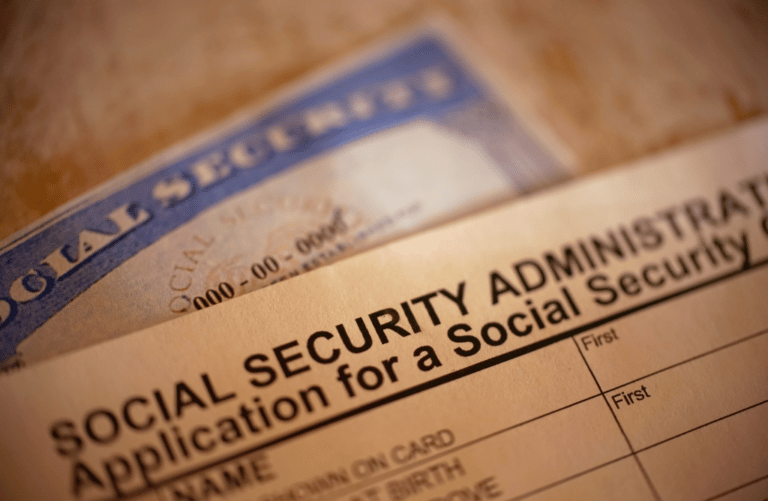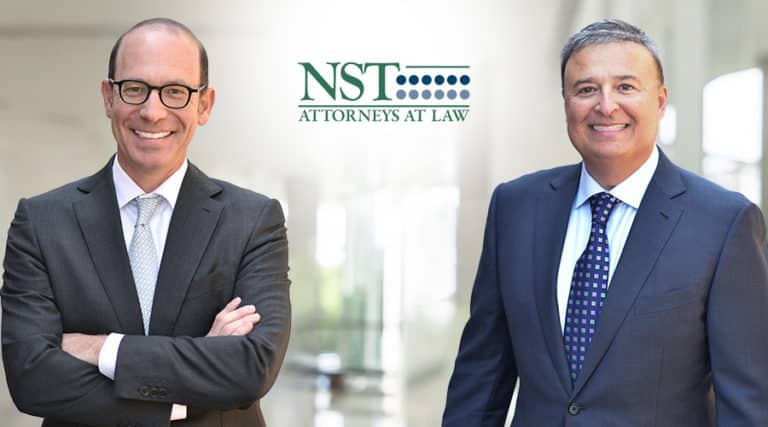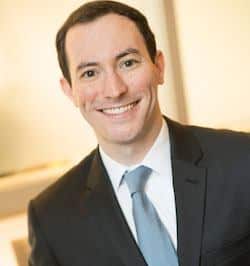
Memphis
Social Security Disability Lawyers




Mr. Trotz was recognized from 2019-2023 as a Super Lawyers Mid-South Rising Star. Mr. Trotz is also a member of the Young Lawyers Division of the Memphis Bar Association, Memphis Bar Association, Tennessee Bar Association, and the Tennessee Trial Lawyers Association where he serves on the Executive Committee. READ OUR EDITORIAL GUIDELINES
Mr. Trotz was recognized from 2019-2023 as a Super Lawyers Mid-South Rising Star. Mr. Trotz is also a member of the Young Lawyers Division of the Memphis Bar Association, Memphis Bar Association, Tennessee Bar Association, and the Tennessee Trial Lawyers Association where he serves on the Executive Committee. READ OUR EDITORIAL GUIDELINES
Mr. Trotz was recognized from 2019-2023 as a Super Lawyers Mid-South Rising Star. Mr. Trotz is also a member of the Young Lawyers Division of the Memphis Bar Association, Memphis Bar Association, Tennessee Bar Association, and the Tennessee Trial Lawyers Association where he serves on the Executive Committee. READ OUR EDITORIAL GUIDELINES
Social Security statistics show that only 20.7 percent of Social Security disability applicants were approved upon initial application in 2019, the last year for which data is available. The percentage of applications approved upon appeal was significantly lower at fewer than 3 percent total for all levels.
With these types of odds, the deck is stacked against you whether you are applying for the first time or appealing. The experienced Memphis injury attorneys at NST Law can help turn the tide in your favor.
Table Of Contents
- How Our Memphis Social Security Disability Attorneys Can Help
- Qualifying for Social Security Disability
- How is Disability Determined?
- The Social Security Disability Claims Process
- Understanding the Difference Between SSDI and SSI
- What to do if Your Social Security Claim is Denied
- Common Reasons for Denial
- The Appeals Process
- Time Limit to Appeal
- Why should I choose NST Law to handle my Social Security Disability claim?
- Social Security FAQs
How Our Memphis Social Security Disability Attorneys Can Help
If you are applying for SSDI for the first time, you will be required to handle a series of complex tasks that are best handled by a reputable Memphis Social Security disability lawyer with experience handling Social Security claims.
The Social Security Administration (SSA) provides a complicated disability application with detailed documentation requirements that can be overwhelming. The disability Social Security lawyers at NST Law can help you understand every stage of the process and handle the details for you, including the following:
- Gather your documents
- Ensure your medical verification is sufficient
- Complete your application completely and correctly
- Speak with the SSA on your behalf
If you need to file an appeal, our attorneys can identify the cause of the denial and submit a strong claim that eliminates these issues. No matter the stage of the process you’re in, our law firm has successfully handled cases just like yours and achieved exceptional results. Call our Memphis disability law office today for a free case review.
Qualifying for Social Security Disability
To qualify for SSDI, you must have the following:
- A qualifying disability
- Sufficient work credits
How is disability determined?
Work Credits
Whenever you work and pay Social Security taxes, you earn work credits. You can earn up to 4 credits per year based on your earnings. If you earn enough credits to qualify for SSDI, the SSA considers you “insured.”
To qualify for SSDI, you must have worked long enough and recently enough. The required work credits will vary based on your age at the onset of your disability. The older you are, the more work credits you will need.
Disability
The Social Security Administration defines a disability as a medical condition that prevents you from working and is expected to last at least a year or result in death. The SSA determines whether your disability qualifies by evaluating the following:
- Whether your impairment is listed on the SSA’s list of medical conditions
- Whether your condition is severe enough to prevent you from performing work-related activities, such as lifting, standing, or walking
- Whether you can perform work you did previously
- Whether you can perform other types of work
The SSA’s definition of disability does not include partial or short-term disability.
The Social Security Disability Claims Process
In order to prove you meet these criteria, you will be required to submit an application and provide the necessary documentation that will allow the SSA to confirm your information.
You will need documentation to identify and verify your identity, work history, and medical condition. The Social Security Administration will contact your healthcare providers. If they do not provide sufficient information, you may be required to submit to a Social Security medical examination to establish your eligibility.
An experienced Memphis Social Security disability attorney can help you gather the required information, complete your application, and submit it to the SSA.

Understanding the Difference Between SSDI and SSI
In some cases, you may have a qualifying disability but lack the necessary work credits to qualify for SSDI. Fortunately, the Social Security Administration provides an alternative program, Supplemental Security Income (SSI), to individuals who lack income and assets but cannot earn an income due to a qualifying disability.
The difference between SSDI and SSI is that, whereas an SSDI applicant’s eligibility is based on work credits, an SSI applicant’s eligibility is based on financial need. In order to qualify for SSI, your income and assets must be lower than the SSI limit, which is adjusted annually. If this fits your situation, a Memphis SSI disability lawyer at NST Law can help you apply for SSI.
What to do if Your Social Security Claim is Denied
If your claim has been denied and you have not yet retained a reputable Memphis social security lawyer, it is imperative that you contact an attorney as soon as possible. An attorney can identify and address the reasons for the denial.
Common Reasons for Denial
SSDI applications may be denied for several non-medical and medical reasons.
Non-Medical Denials
Also known as Technical denials, non-medical denials are often preventable with the help of an attorney and may include the following:
- Incorrect or incomplete application
- Insufficient documentation
- Too few work credits
Medical Denials
- Impairment is not expected to last 12 months.
- Impairment is not severe.
- The SSA has determined you are able to perform your usual work duties or another type of work.
- The impairment is related to drug or alcohol addiction.
- The medical evidence is insufficient.
The Appeals Process
The SSDI appeals process includes the following four phases:
- Reconsideration – a request for a review by someone at the SSA who was not part of the initial decision
- A hearing by an administrative law judge
- A review by the Social Security Administration’s Appeals Council
- A civil lawsuit in federal court
The United States Government Accountability Office (GAO) has observed that the wait time for a hearing is extensive. The SSA flags cases that seem urgent, but even these cases have long wait times.
According to the findings, applicants whose files have been flagged by the SSA prior to reaching the hearing stage of appeals wait a median of 201 days for a hearing. Applications flagged during the hearing stage receive a hearing after a median of 351 days. Unflagged cases wait as long as a median of 469 days.
If you are applying for SSDI for the first time, don’t wait for a denial before you hire an attorney. Having to go through the appeals process can result in significant delays in receiving your benefits.
Time Limit to Appeal
Each appeal must be initiated within 60 days of receiving a decision notification from the SSA. This 60-day limit applies to each stage of the appeals process.
Why should I choose NST Law to handle my Social Security Disability claim?

The attorneys at NST Law have more than 32 years of experience championing the cause of injured and disabled individuals. We are known as champions for the injured because our attorneys are passionate about helping individuals who need help standing up to large entities such as the Social Security Administration.
We are passionate about giving back and making a difference in the communities we serve. We actively support organizations that help low-income communities, promote diversity, and stand up to hate and bigotry.
In Memphis, we regularly volunteer and have provided financial support to such worthy organizations as the following:
- The Memphis Youth Symphony Program
- Facing History and Facing Ourselves
- Kindred Place (formerly Exchange Club of Memphis)
- HER Faith Ministries
- St. Mary’s Soup Kitchen
- Ronald McDonald House of Memphis
If you need to apply for Social Security disability, you do not have to go through this process alone. Let the champs take up your cause and help you get rightfully due benefits. Contact our Memphis social security attorneys today.
Social Security FAQs
Below are answers to the most frequently asked questions we receive.
Why are so many Social Security claims denied initially?
The most common reasons for denials are technical, non-medical reasons. Most likely, these claimants are not represented by an experienced, reputable lawyer for Social Security disability.
Do I need an attorney to file for Social Security benefits?
The high rate of denial of first-time applications and the even higher rate of denials of appeals demonstrate the importance of hiring an attorney to handle your Social Security disability claim.
Furthermore, the lengthy nature of the appeals processes underscores the importance of enlisting the assistance of a knowledgeable and qualified Memphis Social Security disability attorney during the initial application.
Are my children eligible for benefits?
If you have dependent children who meet any of the following criteria, they may be eligible to receive dependent benefits.
- Under the age of 18
- Attending high school and under the age of 19 years and 2 months
- Over the age of 18 but with a disability that began prior to the age of 22
How do lawyers get paid for social security cases?
At NST Law, payment for services is only due after we successfully help you obtain an approval and you recover your past due benefits, also known as back pay.
Will I receive medical coverage if my claim is approved?
Most SSDI beneficiaries are eligible for Medicare after a 24-month waiting period. This waiting period commences on the first day you are entitled to benefits. If you are approved during the appeals process, your waiting period may have concluded by the time you are approved.

Contact us for a free consultation now so that we can review your case and decide how we can best help you.

